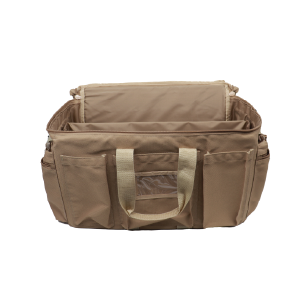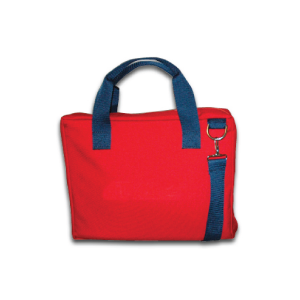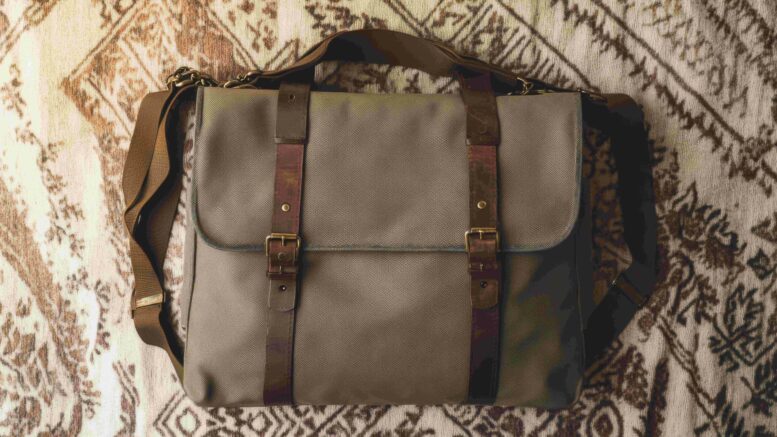When selecting the right material for your equipment bag, the decision often comes down to nylon vs canvas bags. Whether you’re a procurement specialist, military contractor, or gear enthusiast, understanding how these materials perform in real-world scenarios is critical.
At Fieldtex, we specialize in manufacturing rugged, purpose-built nylon and canvas bags for demanding industries—including medical, industrial, and military applications. While nylon is often seen as the modern standard, canvas continues to offer unique advantages. In this article, we explore how these materials stack up in terms of durability, weight, performance, and history—so you can make the right choice for your mission.
A Military Evolution: From Canvas to Nylon
Most people associate military backpacks with canvas—and for good reason. From World War I through the Korean War, military packs and gear bags were almost exclusively canvas. Durable, breathable, and time-tested, canvas was the standard for decades.
But during the Korean War, the military began transitioning to nylon backpacks and gear. Nylon’s superior resistance to water, mildew, and tearing made it ideal for combat environments where weather and mobility mattered. This shift wasn’t just about modernization—it was about performance under pressure. Today, the U.S. military and contractors rely heavily on nylon for rucksacks, medical kits, and other bags.
Nylon Bags: Lightweight, Water-Resistant, Built for Movement
Nylon’s biggest strength is its lightweight nature. When you’re on the move—whether hiking through rugged terrain, traveling for business, or deploying overseas—every ounce matters.

Nylon is also:
- Naturally water-resistant (especially when coated with PU or silicone)
- Resistant to abrasion, mildew, and UV rays
- Available in tactical finishes for concealment and operational readiness
- Foldable and compressible for easy storage
That’s why nylon backpacks dominate in military, EMS, and tactical environments. From modular field packs to rapid-response medical bags, nylon delivers reliability without added weight.
Canvas Bags: Heavy-Duty, Heritage, and Eco-Friendly
Despite the rise of synthetic materials, canvas hasn’t disappeared—and for good reason. It offers:

- High durability in static environments
- A classic aesthetic ideal for heritage or lifestyle products
- Natural breathability, making it great for gear that needs ventilation
- Sustainability: often made from biodegradable cotton or hemp fibers
When we manufacture canvas bags, it’s usually for gear that needs to stay put and last forever—like base camp storage, industrial tool bags, or outdoor equipment totes. With proper waxing or treatment, canvas can resist moisture while retaining its rugged look.
Nylon vs Canvas: Side-by-Side Comparison
| Feature | Nylon | Canvas |
|---|---|---|
| Durability (Mobile Use) | High | Moderate |
| Durability (Static Use) | Moderate | High |
| Weight | Light | Heavy |
| Water Resistance | Excellent (with coatings) | Moderate (treated) |
| Breathability | Low | High |
| Eco Impact | Higher (synthetic) | Lower (natural fibers) |
| Style / Branding | Sleek, tactical | Classic, customizable |
Which Should You Choose: Canvas or Nylon Bag?
Use canvas bags for:
- Heritage-style duffle bags
- Tool storage totes
- Camp storage or long-term supply kits
- Environments where breathability and aesthetics matter
Go with nylon bags when:
- Weight and mobility are key (e.g., nylon military backpacks)
- You need water resistance or packable designs
- You’re building modular gear or med kits for dynamic environments
Our Recommendation
There’s no one-size-fits-all answer to the canvas or nylon bag question. That’s why our team works directly with clients—especially in the military and field service sectors—to evaluate your specific needs.
Whether it’s a heavy-duty canvas tote or a lightweight nylon diagnostic pack, our approach is rooted in decades of material science and manufacturing experience.
Ready to Build Your Next Bag?
We don’t just make bags—we engineer mission-ready gear. Learn more about us and our capabilities by visiting our home page.

